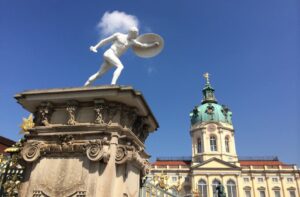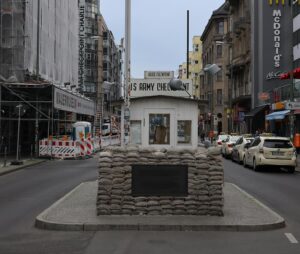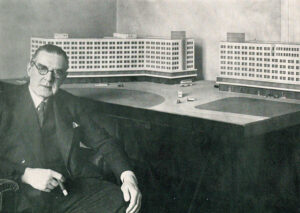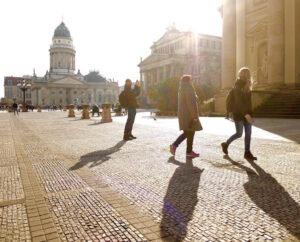Strolling through Berlin’s less touristy areas means frequent encounters with reminders of the past and warnings for the future. It can be intoxicating and unnerving at the same time. It’s certainly never dull.
A Haunting Memorial in Invalidenpark
One such encounter, in the form of a little visited memorial, is located on Invalidenstrasse, not too far from where it crosses the Chauseestrasse, an intersection laden with history. It was there in December of 1918 that German soldiers fired into a crowd of civilians during the opening of the German Revolution, an act unthinkable four years earlier and stark evidence of just how brutalising the Great War was. In the final days of the next war, in April 1945, Soviet troops made their way down these same roads, extinguishing the last embers of life left in Hitler’s fortunately misnamed Thousand Year Reich.
But that’s not what we’re visiting today. As you stroll down Invalidenstrasse past the Natural History Museum away from that intersection with its dark past, you’ll come to an otherwise small, nondescript looking park named, appropriately enough, the Invalidenpark. Once a part of the 18th century ensemble built to care for soldiers wounded in war, the reconstructed park today plays host to a rather unusual cement monument built to commemorate the fall of the Wall in 1989 and its disappearance in 1990.
Tyranny’s Return? Reflections on Berlin’s Sinking Wall Monument
Called by various names, most famously the «Sinking Wall,» the memorial depicts a stylized section of the Communists’ infamous bulwark apparently sinking into a shallow pool of water. The Wall, foundering like a stricken ship, appears to slide into the water at a 45-degree angle, soon to vanish beneath the cleansing waters of oblivion as the city reunites into a whole once again.
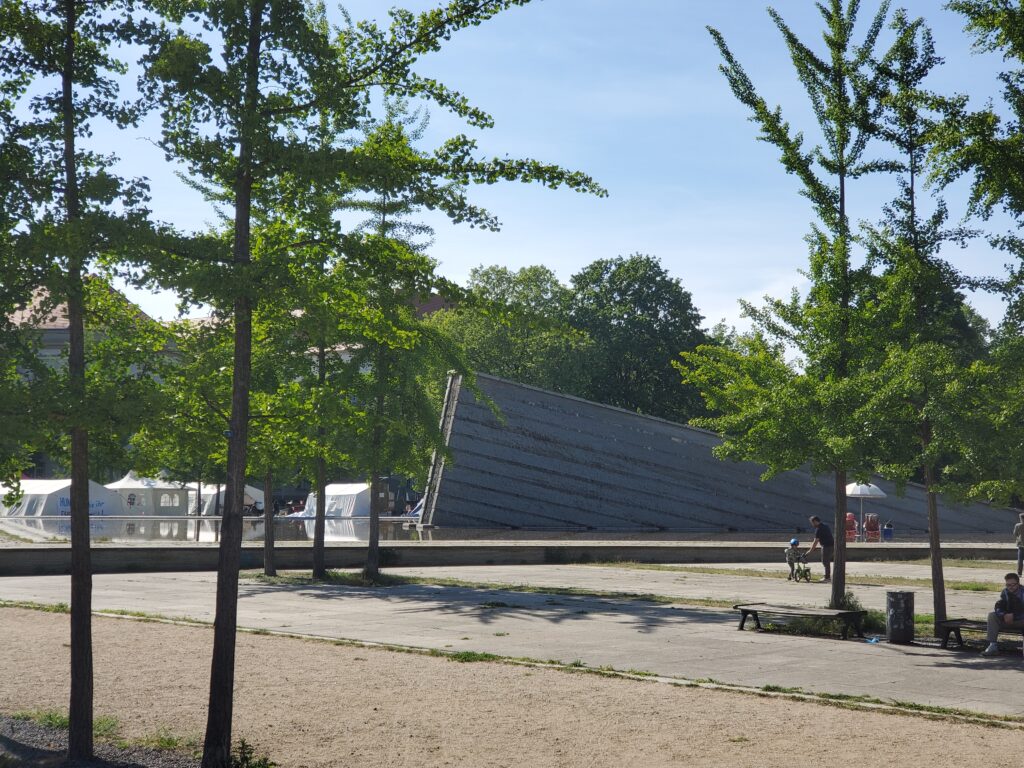
Christophe Girot, the French artist who built the memorial in 1997, has produced what for me is a work of sublime contradictions. When you look at how the memorial is framed, your instinctual response will probably be that the ugly concrete barrier, and all the division and conflict its existence implied, was fading away and will soon vanish from memory altogether. However, the artist placed a small running stream of water which, flowing down the narrow side of the wall and into the pool below, invites a deeper look. A moment’s reflection is enough to understand that if an object is sinking down into the water, then how is it possible for water to flow down the side? The Wall, what’s left of it above water, after all, should still be dry at the moment in which it’s depicted.
Berlin’s Sinking Wall: A Memorial with a Warning for the Future
To me, the artist is offering us a stark warning, hidden in plain sight. The Wall which you had initially imagined might be sinking, might also be rising from the water and reappearing once again. The water is flowing down the side because it’s returned from the depths to which we thought we had consigned it. The Wall, it turns out in this sculpture, can be understood as either sinking or rising; the interpretation is up to you.
As I write, Germany and its capital, along with much of Europe, is convulsed by politics at its divisive worst. Right-wing populism and outright fascism seem to be returning in force as people once again seek simple answers to complex questions. The idea of taking refuge behind walls and fighting off «the other» has become appealing once again to ever increasing numbers of people. Why integrate and get along when it’s cheaper and easier to erect a barrier between «us» and «them.» Walling oneself off from challenges is, alas, an all-too-common human reaction.
The Sinking Wall of Berlin: History’s Warning in Invalidenpark
So, when you visit this simple yet profound monument, consider that although the Berlin Wall of 1961 to 1989 has gone, the forces that drive us to sever our connections to our fellows and nurture a siege mentality are still with us and are growing stronger. When you gaze on this unusual and challenging memorial in the Invalidenpark, take careful note of its sublimely rendered mixed messages, that what has sunk is not necessarily gone and what was horrible has a chance of returning. That water gently babbling down the face of the Wall is our warning, softly delivered yet profound in its implications.
A Symbol of Tyranny’s Possible Return
And that is what makes wandering the streets of Berlin such a haunting experience. The past is not simply the past here, the past is also a warning to the future. When you visit Berlin, you’ll start finding yourself entering into a dialogue with this history- tortured town and its many tales. Few cities on earth can be considered both a place to live as well as a call to take action, before it’s too late again.
Remembering the Past, Warning the Future
In Berlin, in these unexpected moments and little discoveries, the past will do its best to hook you into a conversation; if you hear that whisper, then engage with it. It’s part of what makes travel here unique.

